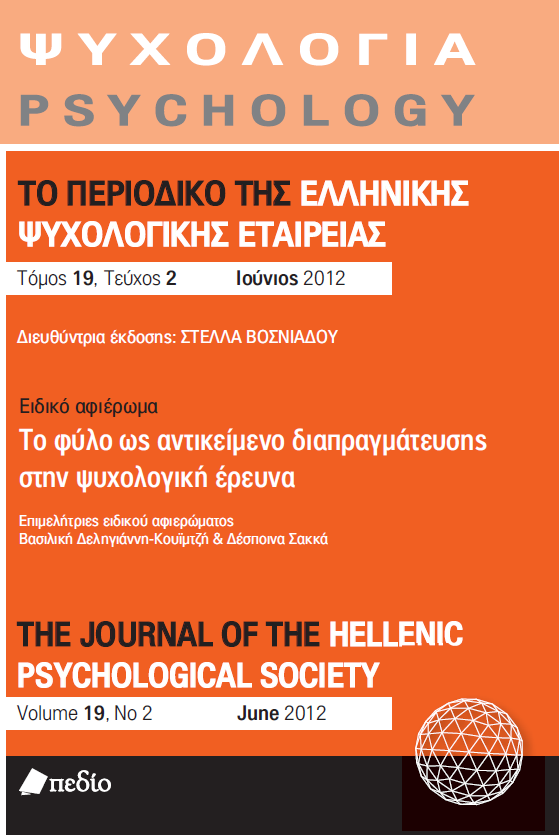A feminist multicultural approach to counselling psychology

Abstract
The feminist multicultural model has emerged from the feminist counselling approach. The feminist approach in counselling psychology, which was developed especially during the 1960’s and 1970’s, focused on individual solutions to human problems and did not place a great emphasis on other multicultural factors in therapy. By acknowledging
the influence of multiculturalism on people’s mental health, counselling psychology started to gradually pay more attention to the relationship between individuals and their environment and considered the cultural
environment as a major influencing factor in the shaping of identity but also in the nature of problems faced. At the beginning, this multicultural dimension was included very often unevenly in the feminist therapy.
Recently, we see an effort to integrate these two mainstreams towards the development of an integrated feminist multicultural therapeutic approach. This approach is based on the realization that, although in
traditional therapies the emphasis has been intrapsychic and the main assumption was that man is responsible for his condition, more recent developments in the field of therapy acknowledge that people
do not always have the same opportunities and cannot always be totally responsible for the adversities they face because any kind of oppression often reduces their power and limits their access to choices. This article
presents the development of the model, the theoretical mainstreams, the principles and trends that reinforce this development and its impact on the therapeutic approach
Article Details
- How to Cite
-
Μαλικιώση - Λοΐζου Μ. (2020). A feminist multicultural approach to counselling psychology. Psychology: The Journal of the Hellenic Psychological Society, 19(2), 215–229. https://doi.org/10.12681/psy_hps.23618
- Issue
- Vol. 19 No. 2 (2012)
- Section
- SPECIAL SECTION

This work is licensed under a Creative Commons Attribution-ShareAlike 4.0 International License.
The journal PSYCHOLOGY adopts a Platinum open-access policy. Submission, processing or publication costs are waived by the Hellenic Psychological Society. Papers published in the journal PSYCHOLOGY are licensed under a 'Creative Commons Attribution-ShareAlike 4.0 International' licence. The authors reserve the copyright of their work and grant the journal the right of its first publication. Third-party licensees are allowed to use the published paper immediately after publication as they wish, provided they retain the defined by the license copyright formalities, regarding the reference to its author(s) and its initial publication in the journal PSYCHOLOGY. Moreover, any adjusted work should be shared under the same reuse rights, so with the same CC license.





